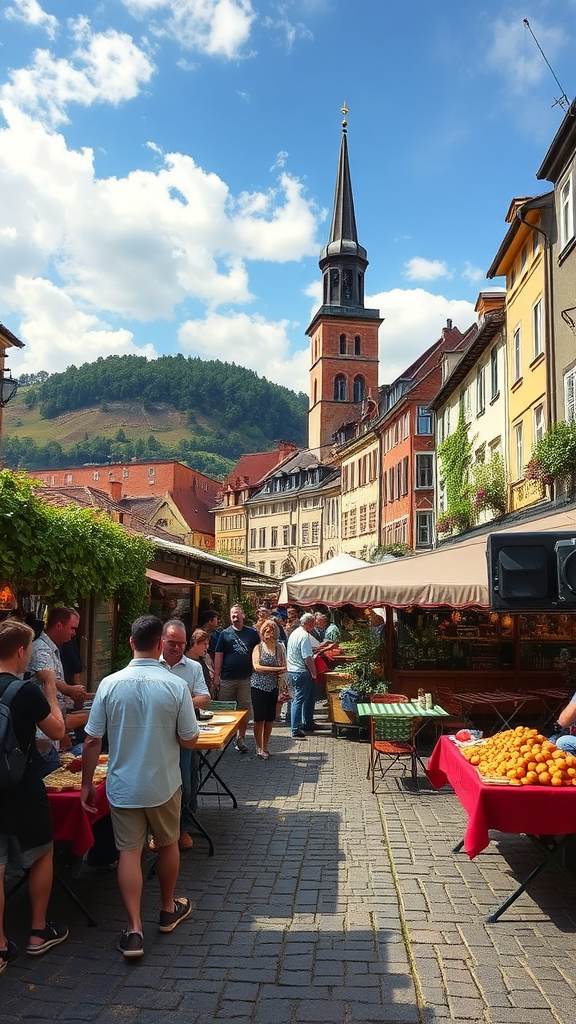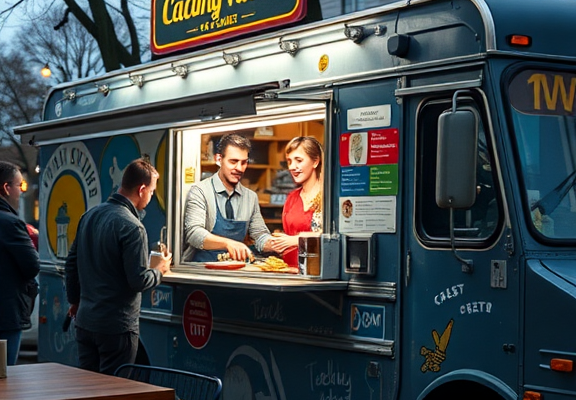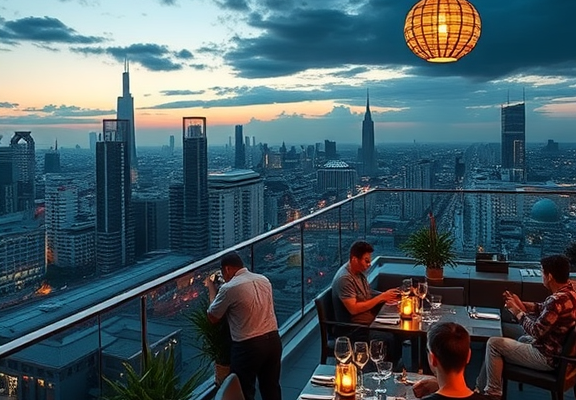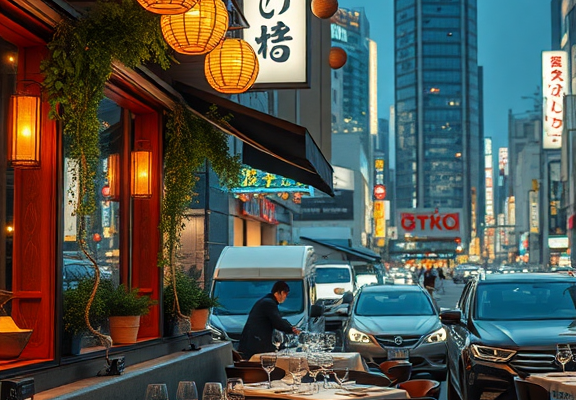Discovering Food Festivals Worth Traveling For in Europe: A Culinary Journey
Europe is a treasure trove of culinary delights, and its food festivals provide an exciting opportunity to experience local culture and flavors. From the world-renowned Oktoberfest in Germany to the charming street food markets of Spain, there’s a festival that will appeal to every palate. In this culinary journey, you’ll discover food festivals worth traveling for in Europe that offer more than just tasty treats.
Thank you for reading this post, don't forget to subscribe!Oktoberfest, Munich, Germany
Starting in late September and lasting into the first week of October, Oktoberfest is one of the largest beer festivals in the world. Held in Munich, this festival attracts millions of visitors who come for the beer, hearty Bavarian fare, and lively music. You can indulge in classic dishes like pretzels, sausages, and schnitzels while enjoying the festive atmosphere of the many beer tents. Don’t miss the chance to experience traditional folk music and dance performances that add charm to the event.
La Tomatina, Buñol, Spain
If you’re looking for a unique foodie experience, La Tomatina in Buñol is not one to miss! Held on the last Wednesday of August, this quirky festival involves a massive tomato fight where participants throw squashed tomatoes at one another. The celebration is a riot of color and laughter, but it also promotes local cuisine. After the food fight, enjoy traditional dishes like paella and tapas at the various stalls set up around town. The vibrant atmosphere makes this festival a must-visit!
Fête de la Gastronomie, France
Each September, France celebrates its culinary heritage with the Fête de la Gastronomie, a national event that showcases the diverse regional cuisines across the country. This festival encourages people to explore local markets, wine tastings, and cooking workshops. Whether you’re in Paris or a small village, you can find activities ranging from cheese tastings to gourmet picnics. This is an opportunity to dive into the heart of French culture and savor delicious dishes, from escargot to crème brûlée.
Truffle Festival, Alba, Italy
In the fall, the Truffle Festival in Alba, Italy, entices food lovers with its rich truffle hunting tradition. Held from mid-October to mid-November, this festival is dedicated to the legendary white truffle, known for its luxurious taste. Visitors can sample truffle-infused dishes, and attend gourmet dinners featuring this prized ingredient. Participate in truffle hunting excursions with local experts and learn how to find these underground gems in the beautiful Piedmont region.
Milan Food & Wine Festival, Italy
If you’re a fan of high-quality food and wine, Milan’s Food & Wine Festival is perfect for you. Taking place each April, this event showcases renowned chefs, winemakers, and food artisans from across Italy and beyond. Interact with culinary experts during workshops, attend tastings, and enjoy exclusive dining experiences. Immerse yourself in the vibrant Italian culture while indulging in delectable dishes and fine wines.
Cheese Rolling Festival, Gloucestershire, England
For a lighter, entertaining experience, consider the Cheese Rolling Festival at Cooper’s Hill in Gloucestershire, England. Every May, participants chase a round of double Gloucester cheese down a steep hill, all for the glory of catching it! While it might seem quirky, this festival also celebrates local cheese artisans and offers plenty of delicious food stalls and family-friendly activities. Enjoy the festive spirit and camaraderie of this unique event.
International Street Food Festival, Budapest, Hungary
This festival, held in the heart of Budapest, attracts food lovers who crave a taste of diverse cuisines from around the globe. You can explore food trucks and stalls featuring Hungarian dishes like lángos (fried dough) or gulyás (goulash), along with international options. With cooking demonstrations and live music, this festival creates a vibrant atmosphere perfect for sampling bites from various cultures.
These food festivals offer not just a way to taste local dishes, but also a unique chance to immerse yourself in the culture of each destination. Traveling to experience these culinary events can create lasting memories while satisfying your taste buds. Whether you’re in search of vibrant atmospheres or unique flavors, Europe’s food festivals guarantee an enriching and delicious journey!
The Cultural Significance of Food Festivals Across Europe
Food festivals are more than just celebrations of culinary delights; they serve as a vital link between culture, community, and tradition across Europe. Each festival reflects the unique history, regional ingredients, and cooking techniques of its locale, offering visitors a taste of the area’s heritage. Let’s explore the cultural significance of food festivals across the continent.
One of the most compelling aspects of food festivals is their ability to bring communities together. These events allow local farmers, chefs, and artisans to showcase their exceptional products. For example, during the famous La Tomatina in Spain, thousands gather to hurl tomatoes at each other, but even more important is the way this event fosters community spirit and local pride.
In many European countries, food festivals celebrate seasonal harvests, highlighting the importance of regional produce. Festivals like the Almond Blossom Festival in Spain honor the blooming of almond trees and feature local dishes made with almonds. This not only boosts the local economy but also educates visitors about agricultural practices and sustainable food sourcing.
Moreover, food festivals often play a considerable role in preserving traditional cooking methods and recipes that might otherwise be forgotten. In Italy, the Palio di Siena transcends beyond a horse race, incorporating local food into the festivities, with each contrada (district) showcasing their traditional dishes. This practice not only sustains culinary heritage but also reinforces local identity.
- Cultural Exchange: Food festivals invite people from diverse backgrounds, leading to cultural exchanges and mutual understanding. For instance, the Brussels Food Truck Festival features cuisines from around the world, encouraging both locals and tourists to expand their palates and learn about different culinary traditions.
- Artisan Skill Reinforcement: Craftsmanship is often spotlighted at food festivals. In France, the Chocolat Show celebrates chocolatiers who demonstrate their skills, ensuring that artisan techniques are passed down through generations.
- Boosting Tourism: Food festivals attract visitors from all over, contributing to the tourism industry. Events like the Oktoberfest in Germany draw millions, offering local brews and traditional Bavarian food, greatly benefiting local businesses.
As European food festivals continue to grow in popularity, they adapt to modern trends while retaining their historical roots. This balance allows festivals to maintain their cultural relevance, ensuring that traditions stay alive even as new methods of food production and preparation emerge. Events like the Madrid Fusion highlight innovative culinary techniques while still paying homage to traditional Spanish cuisine.
The sensory experience of these festivals—sight, smell, taste, and sound—creates an immersive environment that deepens the understanding of a region’s culture. When you attend a food festival, you do not just eat; you experience the heartbeat of the community. For instance, during the Venice Carnival, street food stalls sell traditional sweets like fritelle while live music fills the air, encapsulating the vibrancy of Venetian culture.
Volunteering at local food festivals can also foster a deeper connection to the community. Many festivals rely on local volunteers, allowing participants to learn about local food practices, meet new people, and appreciate the cultural significance of the food being celebrated. This engagement often leads to a sense of belonging and ownership of the localized food culture.
Furthermore, food festivals can act as platforms for social issues and sustainability, bringing conversations about food waste, ethical sourcing, and health to the forefront. The Taste of London festival, for instance, encourages attendees to examine where their food comes from, emphasizing sustainable practices that benefit the environment.
Food festivals across Europe are vibrant reflections of their cultural landscapes. From fostering community bonds to preserving culinary traditions, these festivals serve as essential expressions of heritage while also engaging newer generations in meaningful ways. By traveling to experience these events, you are not just a visitor; you become a part of a larger story that is rich, diverse, and flavorful.
Conclusion
Food festivals in Europe are more than just a celebration of flavors; they are vibrant gatherings that connect people to their cultures and traditions. Each festival serves as a unique window into the region’s culinary heritage, inviting you to experience the warmth of local customs while savoring exquisite dishes. Whether you are wandering through the colorful stalls of the Grande Fête de la Gastronomie in France or savoring the hearty flavors at Spain’s La Tomatina, these events allow you to engage with passionate food makers, local artisans, and fellow enthusiasts.
Traveling to these festivals is not just about the food—it’s an opportunity to build lasting memories and deepen your understanding of varied cultural identities across Europe. As you taste your way through the delicious offerings, you’ll discover that each bite tells a story, reflecting the history and lifestyles of the region. From the freshest seafood in Italy to the delightful pastries of Hungary, the culinary experiences available at these festivals are diverse and enriching.
So, as you plan your next adventure, consider including one of these amazing food festivals on your itinerary. Traveling for food is a journey that fills your stomach and your soul. The sights, sounds, and flavors you encounter will inspire you long after the last dish has been served. Embrace the spirit of exploration and let the delicious offerings of Europe guide your travels. Whether you’re a die-hard foodie or a casual traveler, these festivals will undoubtedly enhance your European experience, making it truly unforgettable.






